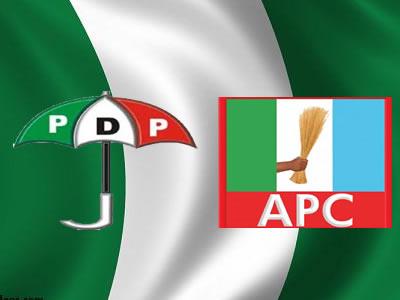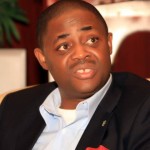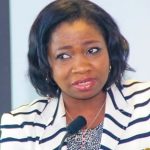An Appeal To Nigerian Politicians, Media On Sentiment Baiting
Featured Contributors/Columnists, Latest Headlines Wednesday, March 11th, 2015
By Prof R. A. Ipinyomi, University of Ilorin, Nigeria
A lesson we are all going to learn from the ongoing Nigeria 2015 general election is the futility of playing to the gallery or even playing with Nigerians or their sentiments. Whilst we keep encouraging every Nigerian to be extraordinarily proud of his or her nationality, religion or ethnic group we must even be more proud that Nigerians are diverse and therefore they should vote on issues, values, and not their sentiments. Nigerians must demonstrate beyond doubt that they are in no way the corrupt, religiously intolerant, political bandits, or media biased people they are accused of being. It is time for Nigerian politicians and the media to stop trying to divide Nigerians into identity groups. The incidence of Boko Haram in our nation at this time is unfortunate but we should regard it as a common battle just like corruption, ineptness, or other vices are common denominators across the land.
But who are the Nigerian politicians in this 21st century or just currently? We may not be able to define then for the entire century because of the dynamism in politics, space and time but we shall attempt to find them in the current dispensation. The Nigerian politicians in the year 2015 that are visible on ground are in three main segments together with their followers. The distinctions between the individuals in these groups can best be noticed either in their leadership styles or their claims to democratic principles or other general tendencies. Being a military man does not make one more dictatorial than a bloody civilian as they want to call us. John Kerry of the United State was a military man but he is currently one of the best diplomats around; he is always ready to listen and ready to present his case. Collin Power was also a many stars army general but much more diplomatic than his civilian President Bush. Your background and your approach to leadership can be independent a times. We had warned President Putin of Russia to be less combative with Ukraine or the West but he chose to remain combative and risking everything. Leadership and its style can be everything for any nation. If Nigeria could have gotten her leadership right, might be things would have improved.
The first main group is the ex-military politicians represented by the OBJ, IBB, the David Mark and the GEM and their cohorts. Gen Gowon could have been in this camp too, because like them he became a Head of State under the age of 30 years, but he is taking to prayers. Gen Abdulsalam is also different because he is for reconciliation missions. They are army generals with less than 20 years military training and experience but they held every possible position in the land each under the age of 40 years. They now seek the same position when they are twice older but it has been more difficult. Politics and patriotism ran in their blood until they found money and fame and abandoned their driving motivations. It seems to us that the military background has been dictating to them that everything they wish for is possible and lobbying and negotiation should never be attempted except for the weaklings. The purpose in politics for this group has been actually to bring some order and discipline to the field but we notice some “strong headedness”, “my will alone” and “a righteous than thou attitude”. Nigeria needs this group and whether this group realizes that they also need Nigerians is another argument.
The second group of politicians is the very people the military boys have always tried to drive away from practice since 1963 after independence. Today this group is represented by the Edwin Clark, Asiwaju of Lagos, the Rotimi Ameachi, the Tanbuwal of Sokoto, the Ogbeni Raufu, the Adams Osiomole, Rocher Okorocha and so on. They believe that they are politicians by birth and they do nothing but live on political scheming and calculations. Unlike the first group they operate more from the grass root, picking and choosing from candidates thereby burning their fingers, and appearing to be setting one group against the others. It also appears to us that their main focus is not how to make Nigeria more beautiful but how to profit from every situation. To them politics is a profession whereas they have no fashion for any ideology or developmental programme except to employ others to write some fine “Political Manifesto” on their behalf. This is the group that Nigerians have to work with because many of them, in spite of whatever we write on them, are the real Nigerian politicians. All that they need is a little more school on politics and honesty, and a little more learning on ideology and perseverance, or a little more learning on living above board rather than living above the law. They also need to depart from pursuit of wealth to pursuit of the welfare of their people, and departing from pursuit of personal aggrandizement to aggressively pursuing the development of the entire country.
By far the most dangerous group is this third group who are neither politicians nor anything. Only the offices they occupy identify them as politicians. Some are regarded as political godfathers if they are rich or real gossip peddlers if otherwise. They can work for any group at any time if the price is right. Their moral barometer is faulty just as the field of their operation has no set limits. These are the people who would participate as members of the Nigeria Executive Council and immediately also allegedly pass information discussed to enemy’s camp; either Boko Haram or opponent camps. They serve in every regime since Nigeria got independence in 1960 but they have no ideology or moral limits. What we are saying is that individuals must live or die for something but the people in this group are not like that because they dine and win with anyone. Simplicity and stupidity are articles we cannot afford in our quest to move the nation forward. On the surface these people are friends of everyone but in reality they are enemies of anything that is right. They are agents of evil knowingly or unknowingly. For example suppose their boss was unable to deal with all the files on the table before the end of the day. A politician in this group can rearrange the remaining files overnight. He may keep some away or add to the pack without the knowledge or permission of his boss. What we are saying is that every Nigerian application for job, contract, or whatever, is equally important; not with this minister whose case is always to be treated first.
The scenario may be inexhaustible but in addition we have a biased press sponsored by each group to run down a perceived enemy and not even ready to do so professionally. We had thought all along that the media in the democratic dispensation would at least be different from the media in an autocratic regime because our work is inseparable and for just a common goal. We will not talk about Nigerian lawyers here (not because I am intimidated by my daughter a PhD lawyer or any of them) but because their own problem requires a whole book and a separate course module. If we intend to run and maintain some decorum in our society, as components of its growth, we must be willing to identify its problems. Nigeria’s problem is not that the military men are unwilling to be subordinates but that some military men always thinking they are almighty or the civilians thinking it is money that they (military) need to get a job done. Nigeria’s problem has also not been differences in political ideologies but total lack of ideology. The press must help to get the society well informed by moving away from living as dependents and cronies on desperate politicians. Most of the news items we read are pirated from the network. You can’t sit there in Lagos and be discussing about current Boko Haram activities in Borno State with Aljazeera. The media houses have to get out of their comfort zones and get the correct news to the people.
Just yesterday a Nigerian living in Britain is refused her daughter coming home at the end of this month (March 2015) because all they are reading in London about Nigeria is that Boko Haram has kept all of us captive. I tried to persuade him that Lagos, Ibadan, Ilorin, Lokoja, even Sokoto, Kebbi, Enugu, Benin etc are safe places in Nigeria. I was not successful in convincing my Nigerian friend living in UK that Nigeria is safe for his daughter because some other Nigerians have advised him otherwise. Why do we have different opinions on same issues? Of course individuals are entitled to their opinions but we must not use fears and apprehensions as weapons against our nations. For example online ticketing are denied to Nigerians living in Nigeria just as Nigerians are also denied several other privileges other nations take for guaranteed. How would foreign governments make decisions on such issues, denying Nigerians the basic rights other nations take for guaranteed?
The Nigerians in Diaspora must come to their senses too that if they had been the Prime Ministers of Britain by now Britain would have been unlivable. If they had been Presidents in the United States by now New York and many cities would have been without electricity or portable water. It is laziness to run away from home and taking comfort in other people’s sweat. Let us work together to build our own country no matter how long it would take and no matter how difficult it would be. The first task is to confront our common enemies, who are also just mortal men and women like us.
Prof. R. A. Ipinyomi
ipinyomira@yahoo.co.uk or/and raipinyomi@unilorin.edu.ng
Related Posts
Short URL: https://www.africanexaminer.com/?p=22644





















